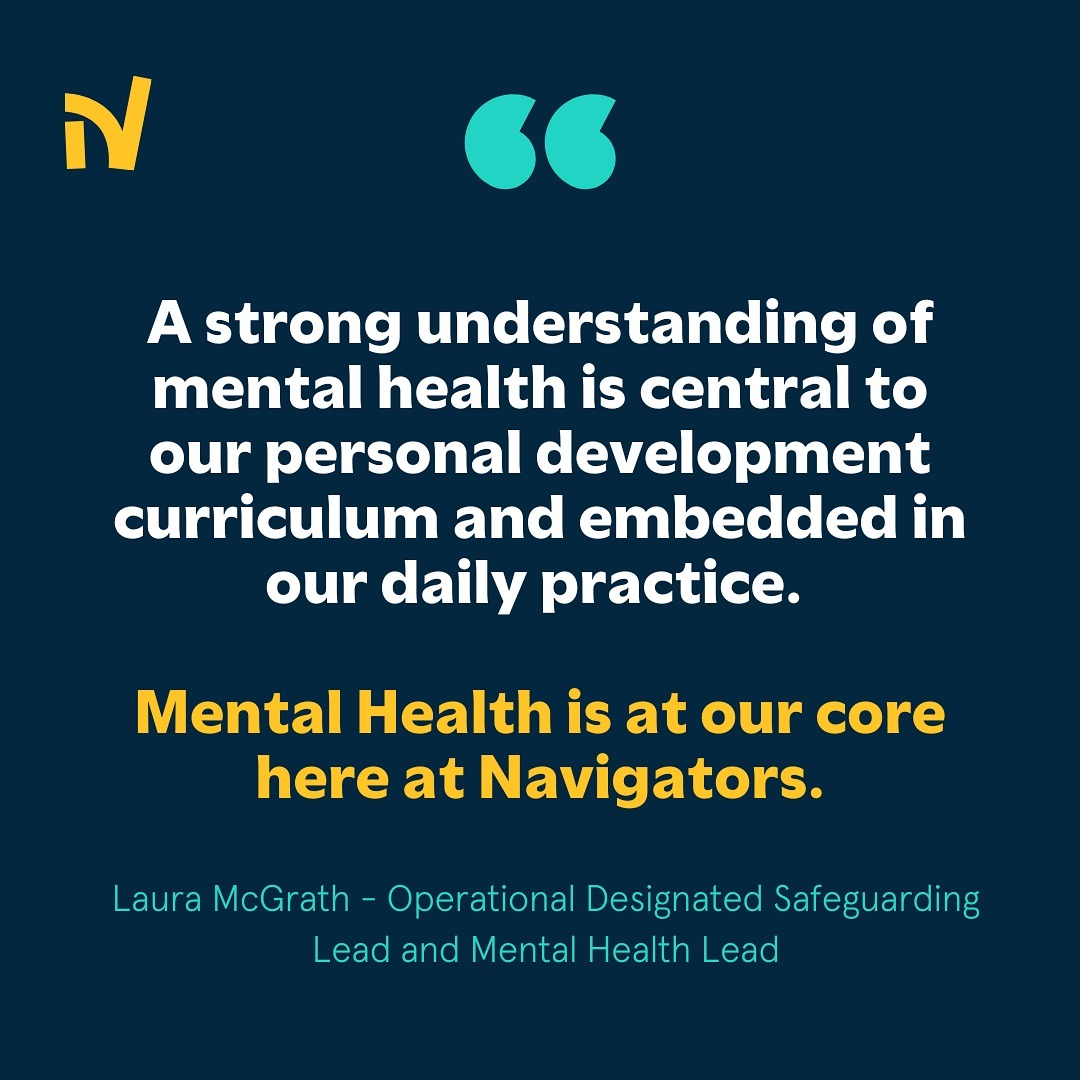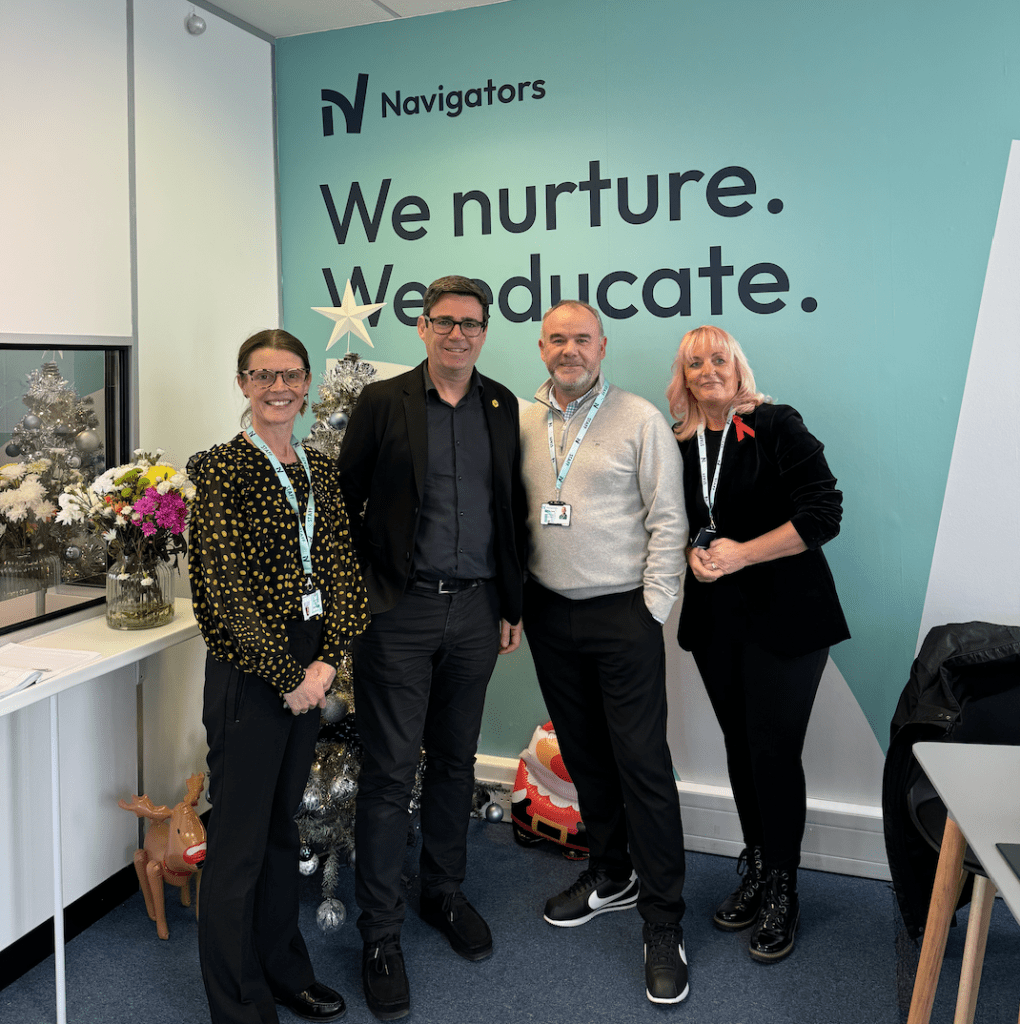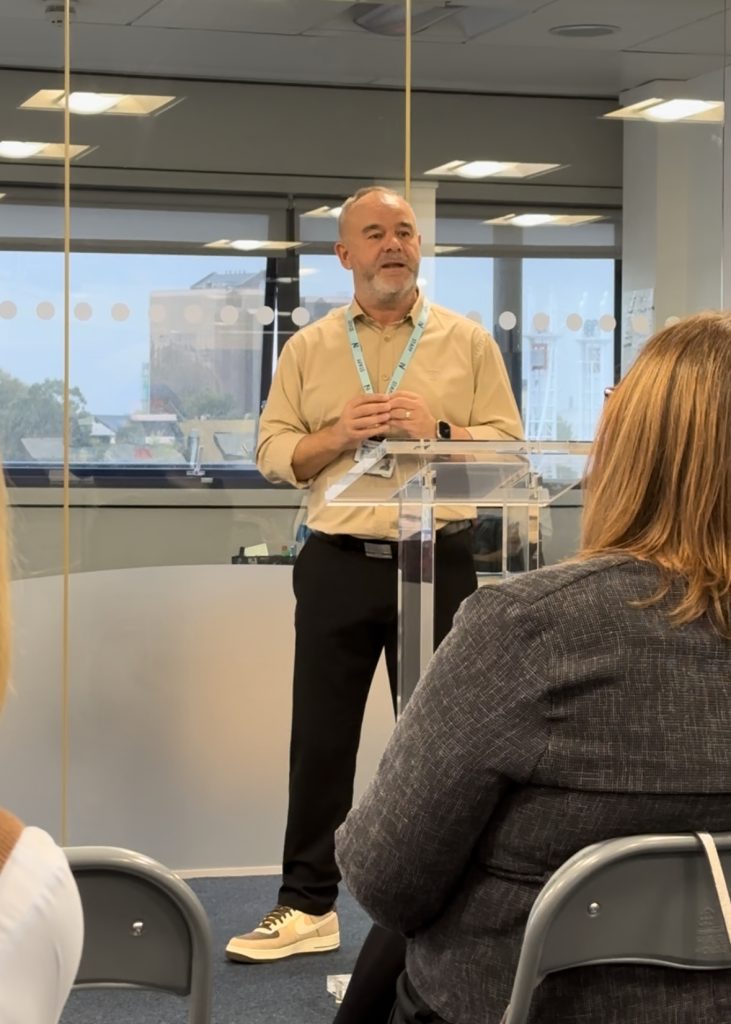Mental Health Awareness Week
Date
15 May 2025
Author
sh-comms

It’s Mental Health Awareness Week 2025 and here at Navigators, we are deeply committed to nurturing the mental health and wellbeing of both students and staff. As discussions on mental health once again take the spotlight, our Mental Health lead Laura McGrath reflects on key wellbeing practices at Navigators, and how they help to support the mental and emotional health needs of the whole Navigators community.
Supporting Emotional Literacy
Life is full of challenges and unexpected circumstances that might test our emotional resilience, so being able to understand and explore our thoughts and feelings is a must. A core part of our personal development curriculum focuses on supporting and enhancing the emotional literacy of our students – by providing the tools, language, and space they need to understand their emotions and feelings, adopt healthy strategies for managing their mental health, and recognise when they might need additional support.
Our 121 programme supports this, as the trust that is built between students and their mentors allows for a safe and supportive space to discuss emotions and feelings. It is another reason why our 121 mentoring approach works for our students. All mentors are supported by a dedicated team of pastoral safeguarding and SEN professionals, creating a robust network of care to ensure every student receives the support they need.
It’s about giving students vital opportunities to discuss how they are feeling, and express when they might be struggling without judgement, and in the context of each student’s individual needs.
Understanding individual circumstances
When a student is referred to us, one of the first steps is to meet them and their families at home. More than just a formality, these visits give us valuable insight into the lived experiences, including the challenges they face, their strengths, and what they enjoy and excel at. This holistic understanding allows us to meet students where they are at, harnessing their individual strengths whilst nurturing their resilience and ability to overcome difficulties.
It also helps us to foster an environment where their personal interests and strengths are prioritised, meaning they are able to enjoy the growth and development that is right for them. This is an important step in developing students’ confidence and self-belief, which are key factors in emotional wellness.
We celebrate our students’ achievements daily, recognising each milestone—no matter how small or big—as a significant step in their own personal journey. We want and consistently work to see students grow into the best versions of themselves and realise their goals and potential.
An individual student centred approach such as this one is essential when promoting good mental health and wellbeing. It really works and is evident when you see our student’s journey from beginning the programme to ending.



